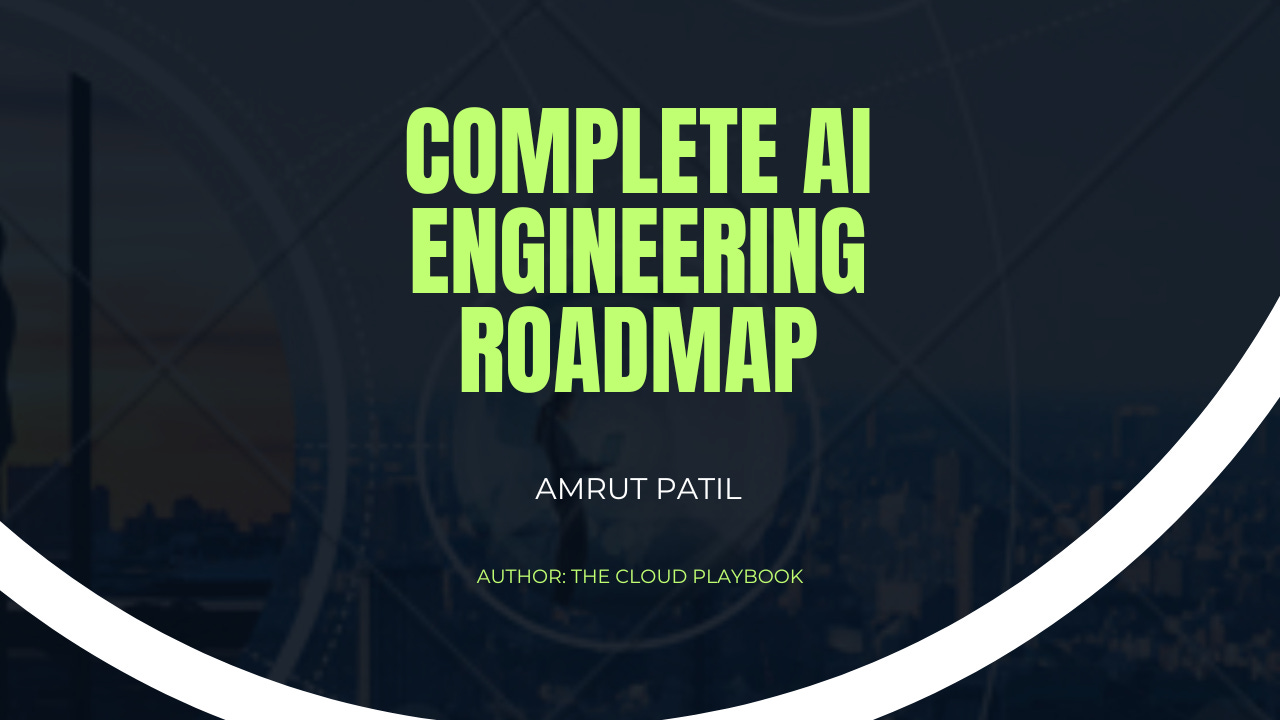The AI Revolution Needs Infrastructure Engineers (Not More Data Scientists)
Free Guide: Complete AI Engineering Roadmap
I've been watching the AI job market explode over the past 18 months, and there's a massive disconnect happening.
Everyone is training to become AI researchers and data scientists.
But companies are desperately hiring AI Engineers.
The Reality Behind the AI Hiring Frenzy
While boot camps churn out aspiring data scientists, here's what's happening in enterprise:
Startups can't get their "AI MVP" to handle more than 10 concurrent users
Fortune 500 companies have ML models sitting in Jupyter notebooks that never see production
AI products crash under real-world load because no one understands distributed systems
Companies pay $50K+ monthly AWS bills for poorly optimized AI workloads
The bottleneck isn't building models, it's building systems that can run them.
And guess who has exactly the skills needed to solve this? Platform, DevOps, Cloud, and SRE engineers like you.
💡 Why Your Background is Perfect for AI Engineering
You already know the hardest parts:
Scaling systems under unpredictable load
Managing infrastructure costs and optimization
Building reliable services with proper monitoring and alerting
Designing APIs that don't fall over in production
Handling data at scale with proper pipelines
AI Engineering is essentially applying the same principles to systems that utilize neural networks rather than traditional algorithms.
📈 The Career Opportunity is Massive
Understanding how to deploy, scale, and maintain AI systems in production.
Companies are paying premium salaries because they need engineers who can:
Deploy LLMs that work under load
Build RAG systems that don't timeout on complex queries
Create agent platforms that can scale beyond demos
Implement proper LLMOps with monitoring and cost control
🎯 Why I Created This Roadmap
After helping dozens of infrastructure engineers transition into AI roles, I noticed they all made the same mistakes:
Starting with ML theory instead of building systems
Getting lost in math rather than focusing on engineering
Building toy projects that don't demonstrate production skills
Learning scattered tools without understanding how they fit together
So I built the roadmap I wish existed, a step-by-step guide that transforms your existing skills into AI engineering expertise through hands-on projects.
What Makes This Different
This isn't another "Introduction to Machine Learning" course.
It's an engineering-focused progression that teaches you to:
Phase 1-2: Strengthen Your Foundation
Master async Python and system design patterns
Build distributed systems ready for AI workloads
Create data pipelines that can handle training and inference
Phase 3-4: Add AI Intelligence
Understand ML/DL concepts from an engineering perspective
Deploy neural networks and transformer models in production
Build document processing systems with real business value
Phase 5: Become an AI Engineering Expert
Create sophisticated RAG systems with vector databases
Deploy AI agents performing complex multi-step tasks
Implement complete LLMOps pipelines with monitoring and governance
Every single project includes: deployment, monitoring, scaling, cost optimization, and production considerations.
⏰ Why Download Today?
First-mover advantage: The AI Engineering job market is exploding with limited experienced candidates
Leverage existing skills: Don't start from zero, build on your infrastructure expertise
Production-ready projects: Build a portfolio that demonstrates real engineering skills
Complete system: Stop piecing together random tutorials and blog posts
What You Get
19+ page comprehensive guide with zero academic fluff
9 production-ready projects that become your portfolio
Phase-by-phase progression (2-4 months per phase)
Most importantly, A clear path from your current infrastructure role to high-paying AI engineering positions.
👉 Get the Complete AI Engineering Roadmap
The Hard Truth 🤔
AI isn't going away. It's becoming the foundation layer for every software company.
The engineers who learn to build, deploy, and scale AI systems will lead the next decade of technology.
The engineers who don't will find themselves maintaining legacy systems while their peers build the future.
Your infrastructure skills give you a massive head start.
The question isn't whether you should learn AI engineering, but whether you'll learn it before everyone else realizes the value of these skills.
Start your AI engineering transformation today
Until next time,
Amrut



https://open.substack.com/pub/hamtechautomation/p/a-battle-tested-sredevops-engineers?r=64j4y5&utm_medium=ios